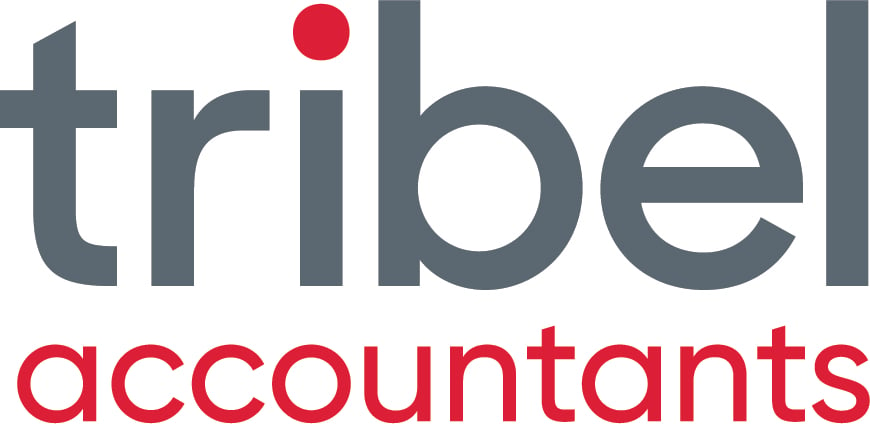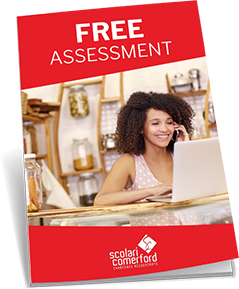INTRODUCTION:
A trip to seeing your small business accountant can for many be like a trip to the dentist. However, it doesn't need to be that way. Yes, given the perception that it could be a very boring meeting or uncomfortable given your financial situation, and yes it is a shame we can't offer to numb the pain with a needle or laughing gas but each meeting should arm you with more information to profitability and cash before you walked in the door.
Now if I own a small business, what would be some of the ways that I could actually make such a trip less painful? Better still could I enjoy it?

Figure 1: A trip to your small business accountants should never be like a trip to the dentist (especially this one!)
1. Have a List Of Things That Worry You
Have you ever gone into a meeting with your accountant stressed, in a hurry and then when you've walked out gone "Well that was a complete waste of time!" A meeting that has structure and is efficient will always yield better results.
Prior to the meeting, sit down and list some of the areas of your business that you are concerned about. It could be cash flow, sales, marketing, profitability or issues with your clients or team.
The more prepared you are for the meeting the better. Keeping your small business accountant Sydney and Dubbo informed of the issues you face should see them adapt suggested solutions to the problems. If you don't tell them what's up, it makes it very hard to get the right advice or more importantly proactive advice.
2. ASk Questions Particularly If You Don't Understand
If you are presented with a heap of numbers such as a balance sheet and profit and loss statement but don't understand what is being explained then stop and ask. Accountants that use mumbo jumbo don't really provide a lot of benefit.
Always ask where the cash is and if possible get information that means more than "you made a profit and this is the tax". Look at key performance indicators such as margins, sales growth, bench marking to similar industries etc.

Figure 2: Don't leave your meeting with your accountant looking like Benny Hill.
3. Present Clean Data
The cleaner the data you present the more likely you will get better information that will assist you to drill down the numbers and see what is going on. Whilst you don't want allocate costs to thousands of lines, design your chart of accounts so that when you look at these you can see more clearly what areas of your income and expenses need reviewing. This will also help when you do your cash flow forecasts or three way budgets. If everything is just lumped in together and then input by your small business accountants Sydney and Dubbo, it will just increase the chances that something is being left unattended to and will not promote good discussion.
Of course, messy, unclean unreconciled data can lead to:
- misdiagnosis;
- higher accounting fees;
- inefficient meeting times (going around in circles);
- incorrect budgeting;
- mistakes (higher taxes).
4. Go Through The Numbers & Unexpected Variances
If something doesn't look right ask questions. Ideally you will have a strategic plan in place and you will have entered your budgets in so that anything that looks strange can be easily identified, analysed and followed up.

Figure 3: If you don't know what your numbers should look like you could go round in circles at the meeting.
5. Write Down An Action PLan Based On Advice
Write things down when sitting with your accountants. List the bits of advice they give and make sure you write down an action plan so you can monitor progress and discuss the results with them either at the next meeting or via email or phone.
6. REquest What-If Scenarios
Asking how you can improve the numbers and cash will usually be able if your accountant has what-if software that will show you with little tweaks how much difference can be made.
Each little tweak should then have an action plan attached to it and chipped away until the goal is achieved. This is not difficult! You just need to ask the questions and get them to show you what can be achieved.
Better still, a great accountant will actually volunteer the information. You shouldn't always have to ask.
CONCLUSION:
Going to the accountant shouldn't be dreaded. If things aren't going to plan then the meeting should give you hope and direction of what you need to try and address to get real business improvement.
If you don't enjoy going to your accountant either you, they or both of you need to change the way you have your meetings.
You might not walk out feeling you've had some laughing gas but at least you should feel optimistic that you can get to, and stay on the right track.


.png?width=100&height=100&name=COVID_Safe_Badge_Digital%20(002).png)




